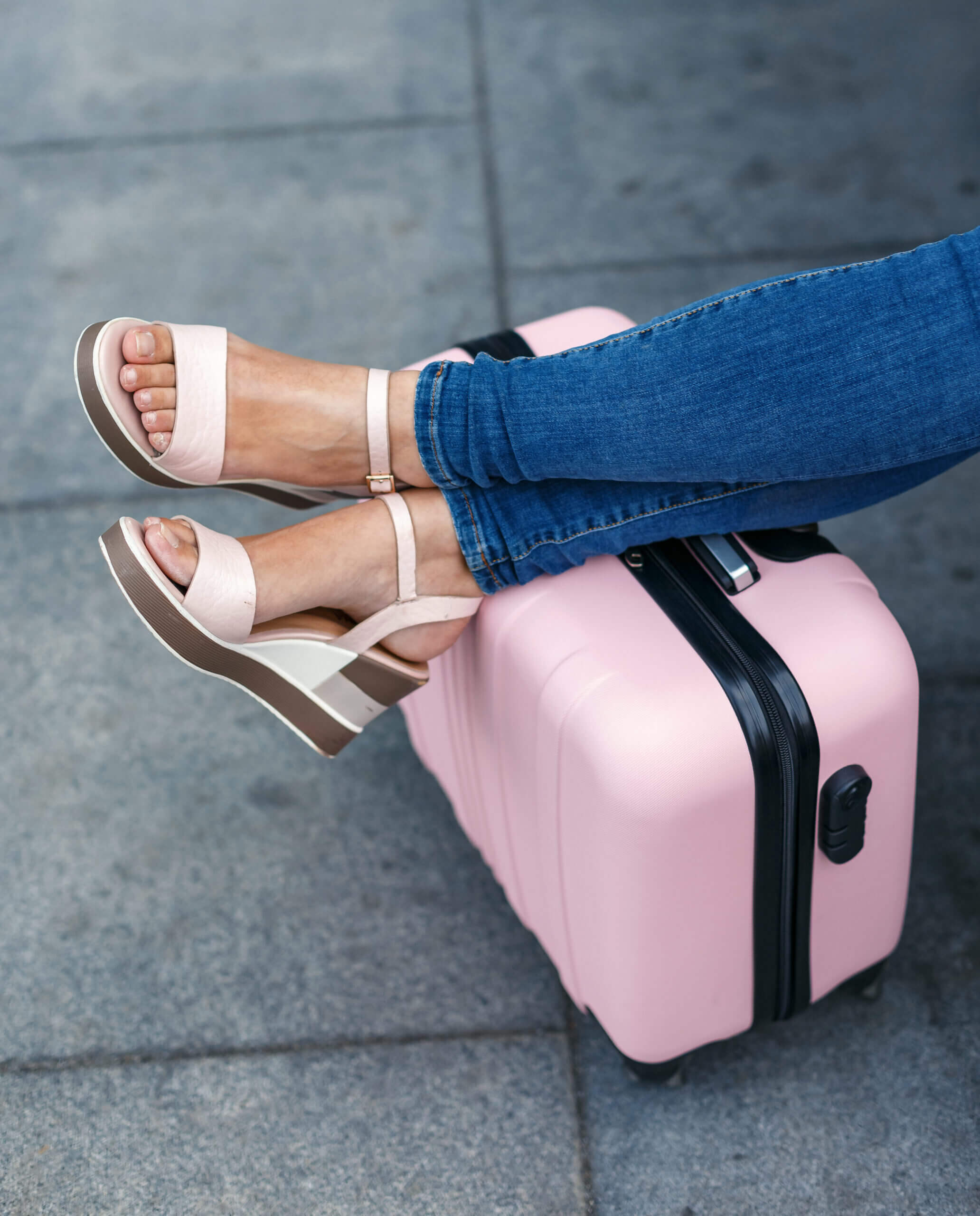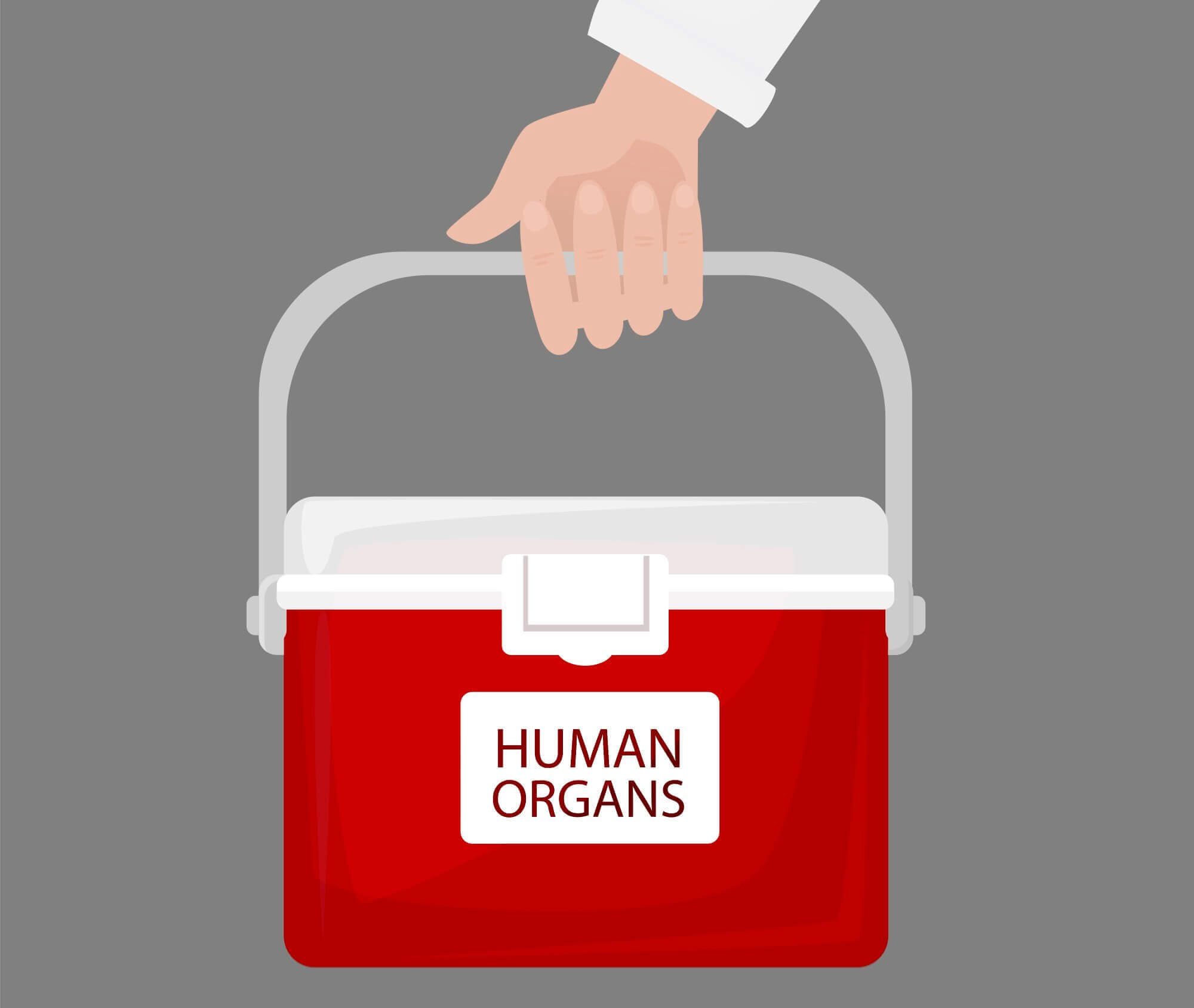What can I bring, when I am traveling from Aarhus Airport?
Not sure about what you are allowed to bring in checked baggage and hand luggage, respectively? Then you can read much more on this page and via the links you will find below.

Remember passport or other official identification when traveling abroad.
Changed EU regulations mean that travelers abroad who have checked in must be able to identify themselves before boarding the aircraft. When traveling outside the Nordic region, a passport is the only valid identification. When traveling to countries in the Nordic passport union, a driving license, health insurance certificate and, of course, a passport can be used.
Medicine
You are allowed to carry your medicine in your hand luggage. If it is a vital medicine, we generally recommend that it be carried in hand luggage if the accident should be out and the checked luggage does not reach the destination. We recommend that medicines in the form of pills and powder are in original packaging. It can facilitate the arrival in a foreign customs authority.
Liquid medicine
Liquid medicine must be in original packaging and presented in Security before screening, as the medicine must be screened in a special tray for screening liquids. There is no limit on size or quantity.
If the medicine needs to be kept cool, you can bring a cooling element if you present medical documentation that the product should be kept cool. Otherwise, cooling elements are not allowed in the hand luggage.
There are no restrictions on the amount of medication in pills or liquid form in checked baggage.
Contact lens fluid
You are welcome to bring contact lens fluid in your hand luggage. Contact lens fluid is considered a liquid medicine and can therefore be carried in quantities greater than 100 ml. It must be in original packaging and presented at Security, where it must be screened in a separate tray.

Food for babies
You are welcome to bring baby food in your hand luggage for children under 2 years. The baby food must be in original packaging and must be presented in Security. It must be screened in a special tray for screening liquids.
There is no limit in size or quantity.
Plants
It is not allowed to bring plants, seeds, fruit and other plant products from travel in countries outside the EU without these being accompanied by a phytosanitary certificate. The rules also apply to small quantities of plants and plant products. The only exceptions to these rules are fruits of pineapple, coconut, banana, durian and date, which can be freely imported.
If you bring plants for planting, including certain types of seeds for sowing, from countries outside the EU, these must be accompanied by a phytosanitary certificate and notified for import. The product will then be import-checked by the Danish Agency for Agriculture. You should be aware that there are costs associated with import control.
Plant products
If you bring fruit, vegetables, cut flowers or other live plant parts not intended for planting from outside the EU, a phytosanitary certificate will still be required, but the products will not have to be notified for import.
The rules are due to a new EU regulation, called the Plant Health Regulation, which aims to protect our natural and cultural landscape as well as plant production against serious diseases and pests that can accompany plant products.
Jagt- og/eller konkurrencevåben
Special rules apply both at the airline and at the airport when you have hunting or competition weapons with you on the trip. Therefore, first contact your airline to find out which rules apply. Neither weapons nor ammunition may be carried in hand luggage.
Arrive well in advance, as the weapon must be inspected by security personnel in connection with check-in, which must always be done in person when traveling with a weapon. To facilitate the expedition, please fill out a weapons form from home. The form is also available at check-in.
How to pack weapons and ammunition
In connection with checking your firearms permit, the staff will also check that you have packed your firearm and ammunition in accordance with the rules:
- Weapons and ammunition must be registered as luggage at check-in
- The weapon must not be loaded
- If possible, the weapon should be separated and packed in different pieces of luggage
- Ammunition must be packed in the original packaging and separate from the weapon in a separate suitcase
- Ammunition must not exceed a net weight of 5 kg.
Travel to EU country
When traveling to an EU country, you must have a valid gun passport, which is checked by security personnel.
Travel to non-EU country
When traveling to a country outside the EU, in addition to a valid weapon passport, you must show a completed weapons declaration.

Organ and cell-transported weapons passport, show a completed weapons declaration.
Transport of organs and cells in special containers / bags can be approved if permission has been obtained from Aarhus Airport in advance. Requests for transport permits must be sent to [email protected] and contain the courier’s name, passport number, departure date and departure time as well as flight number.
An empty courier bag must be checked in as luggage, as the cooling elements contain liquid.
Prohibited objects
In hand luggage:
- Firearms and other devices for firing projectiles
- Dummy weapons and toy weapons
- Electric shock devices
- Pointed and sharp objects
- Tool
- Blunt tools
- Explosive and flammable substances and devices
You may only carry liquids in containers of a maximum of 100 ml and no more containers than can be in a transparent and resealable plastic bag with a volume of 1 liter. For hand alcohol, a maximum of 2 liters applies – however, a maximum of 500 ml. pr. container.
In checked baggage:
- Explosive, corrosive and flammable solids and liquids, gases and substances
- Fireworks
- Magnetic materials, bleaches, anesthetics, paints and the like
- Oxidizing substances
- Oxygenic, toxic and infectious substances
- Radioactive substances
- Various dangerous substances incl. environmentally hazardous substances
Safety personnel may reject objects at any time if they may endanger flight safety. For more specific information, please contact Passenger Service at the airport.